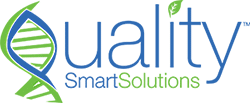 Are your novel food products ready for the new European Food Safety Authority (EFSA) regulations? If you’re planning to enter the European market in 2025, significant updates to the EFSA novel food regulatory framework are on the horizon, effective from February 1, 2025.
Are your novel food products ready for the new European Food Safety Authority (EFSA) regulations? If you’re planning to enter the European market in 2025, significant updates to the EFSA novel food regulatory framework are on the horizon, effective from February 1, 2025.
These changes will affect everything from risk assessments to labelling, sustainability, and more. Staying ahead of these updates could be the difference between success and costly delays.
This guide breaks down the fundamental regulatory changes and how your business can prepare for them. Plus, we’ll reveal how the common industry practice of partnering with experts can help you navigate these complex updates smoothly and avoid potential roadblocks. Keep reading to learn more.
What are these new EFSA Regulations?
1. Stricter Risk Assessments for Novel Foods
EFSA is raising the bar for safety and scientific evaluation, particularly for products developed using new technologies such as nanomaterials or synthetic biology.
These updates require companies to submit comprehensive toxicological, allergenic, and nutritional data supported by long-term studies. If your novel food uses innovative production methods or bioactive compounds, you’ll need a robust evidence package that demonstrates product safety over time.
2. Simplified Process for Traditional Foods from Non-EU Countries
There’s some good news for manufacturers introducing traditional foods from outside the EU. EFSA will now streamline the approval process for foods with a proven record of safe use.
This means that products demonstrating at least 25 years of safe consumption in non-EU markets will qualify for a fast-tracked evaluation, reducing both review time and administrative burden. This update can significantly accelerate entry into the European market for companies with long-established products.
3. Transparency in the Application Process
EFSA plans to make the novel food approval process more transparent by publishing application details and evaluations in a public database.
This will allow consumers, researchers, and industry peers to access information about risk assessments and approvals, increasing both trust and accountability in the food innovation sector.
4. Stricter Labeling and Health Claims Regulations
Misleading or unverified health claims will face closer scrutiny. EFSA will require clearer labels that inform consumers about the food’s novel nature, allergen content, and proper preparation or consumption methods.
Health and nutrition claims must be supported by strong scientific evidence to avoid product rejections or market withdrawal. Brands should review all marketing materials to ensure accuracy and compliance before launch.
5. Protection of Proprietary Data
While transparency is increasing, EFSA will also offer stronger protection for proprietary data submitted during the novel food application process.
Companies will benefit from a five-year data exclusivity period, preventing competitors from using their research to obtain similar approvals. This gives applicants a competitive edge and safeguards their R&D investment.
6. Sustainability Takes Center Stage
For the first time, sustainability metrics will play a central role in EFSA’s assessment process. Foods developed through eco-friendly practices, such as alternative proteins, fermentation, or insect-based products, will receive additional consideration.
Manufacturers are encouraged to quantify and communicate their environmental impact, including carbon footprint or resource efficiency, to strengthen their applications and align with Europe’s broader green transition goals.
7. Increased Scrutiny of Supplements
Supplement manufacturers should prepare for tighter controls on novel ingredients and bioactive compounds. EFSA will introduce upper safety limits and require mandatory usage warnings to protect consumers from overconsumption.
These updates mean supplement labels must clearly outline dosage, duration of use, and safety precautions to ensure continued compliance in the EU market.
Frequently Asked Questions
Do I need new safety studies for already approved products?
If your novel food includes new technology or production processes, you will need updated safety data that aligns with EFSA’s enhanced criteria.
How do I prove my food has been consumed safely for 25 years?
You must provide documented evidence like historical records, studies, or testimonials from recognized institutions.
What happens if my product label is misleading?
EFSA could reject or remove your product from the market, costing you time and money. Avoid exaggerated claims by relying on robust scientific evidence.
Can sustainability give my product an edge?
Absolutely! Emphasizing low environmental impact practices aligns your product with EFSA’s sustainability goals and may lead to a priority review.
Next Steps
Adapting to EFSA’s new framework requires time, strategy, and expertise. At Quality Smart Solutions, we help food and supplement manufacturers navigate the complex EU regulatory landscape — from safety study design and novel food dossier preparation to sustainability documentation and labelling compliance.
Our regulatory experts have helped clients successfully bring novel ingredients and traditional foods to the European market, ensuring full compliance with EFSA’s evolving standards.
Now is the time to assess whether your novel food products meet the upcoming requirements and secure your place in the EU market before the new rules take effect. Learn more about our EFSA Novel Food Application services or contact us to book a free consultation with our team.







